 Petzlover
Petzlover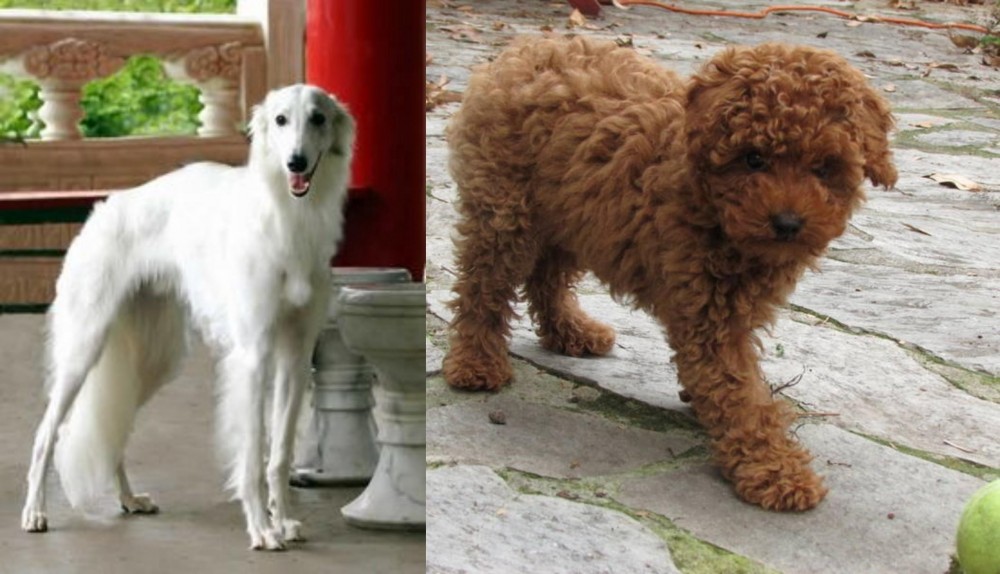 Silken Windhound is originated from United States but Toy Poodle is originated from France. Silken Windhound may grow 32 cm / 13 inches higher than Toy Poodle. Silken Windhound may weigh 15 kg / 34 pounds more than Toy Poodle. Silken Windhound may live 3 years more than Toy Poodle. Both Silken Windhound and Toy Poodle has same litter size. Silken Windhound requires Low Maintenance. But Toy Poodle requires Moderate Maintenance
Silken Windhound is originated from United States but Toy Poodle is originated from France. Silken Windhound may grow 32 cm / 13 inches higher than Toy Poodle. Silken Windhound may weigh 15 kg / 34 pounds more than Toy Poodle. Silken Windhound may live 3 years more than Toy Poodle. Both Silken Windhound and Toy Poodle has same litter size. Silken Windhound requires Low Maintenance. But Toy Poodle requires Moderate Maintenance
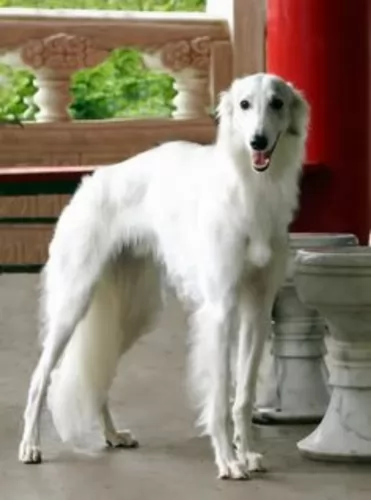 The Silken Windhound is a breed intentionally developed by Borzoi and Deerhound breeder, Francie Stull. Although the first litter of the Windhoud was not born until 1995, their development began in discussions ten years later. Bred as a cross between her beloved Deerhounds and Borzoi, the first Society for the breed formed in 1999 and they were recognized by the UKC in 2011.
The Silken Windhound is a breed intentionally developed by Borzoi and Deerhound breeder, Francie Stull. Although the first litter of the Windhoud was not born until 1995, their development began in discussions ten years later. Bred as a cross between her beloved Deerhounds and Borzoi, the first Society for the breed formed in 1999 and they were recognized by the UKC in 2011.
Ms. Stull wanted another breed for her kennel and decided on a smaller sighthound than her Borzoi. She wanted a long coat, a good temperament, good health, and possessing the same athletic abilities, grace and poise as the sighthounds that are larger. She developed the Silken Windhound based on this vision.
With this in mind, the kennel purchased the pick of a litter from the American and English Borzoi Champion bitch, Stillwater Virginia Reel. This puppy was eventually bred to Stillwater White Lightning and produced puppy that was a blue brindle. This dog, Stillwater Kristull Peacock, had the coat, personality and structure that Ms. Stull wanted for the new breed. She was bred to Deerhound Windsprite Autumnal Xenon to form the foundation for the Silken Windhound.
Over time champion Borzoi were bred with multi-generation Whippet based dogs and small Whippet from coursing and show lines. Finally, all of this work was rewarded with an incredible little sighthound to fit in the line of sighthounds between the giant and large breeds and the smaller whippet type breeds.
The Silken Windhound lives today in 24 different countries. They take their place in hound competitions all over the world in obedience, lure coursing, and racing. They are a Limited Stake Breed in the ASFA and competed with 40 other dogs in 2010. Then they were accepted by the NOFCA or National Open Filed Coursing Association, also in 2010. Finally, in 2011 they were fully accepted by the UKC.
The Silken Windhound is recognized in addition to the UKC, by the Dog Registry of America, the Rarities Inc., the American Canine Association, the Kennel Club of Slovenia, the American Pet Registry, Inc., the International Silken Windhound Society and the International, All-Breed Canine Association of America.
 More and more people are opting not to clip their Poodles ith those ridiculous hair cuts with pom poms. Clipped properly, he can be just as cute as any other dog.
More and more people are opting not to clip their Poodles ith those ridiculous hair cuts with pom poms. Clipped properly, he can be just as cute as any other dog.
It is thought that the Toy Poodle hails from France, with the standard poodle having originated in Germany. The first poodles were used as herders so they’re not just useless dogs with silly pom-pom haircuts.
Some rough-coated water dogs are believed to be ancestors of the Poodle. It was in the 19th century that these dogs became show dogs. Their popularity died out in the 1920s, but it has once again become a popular dog.
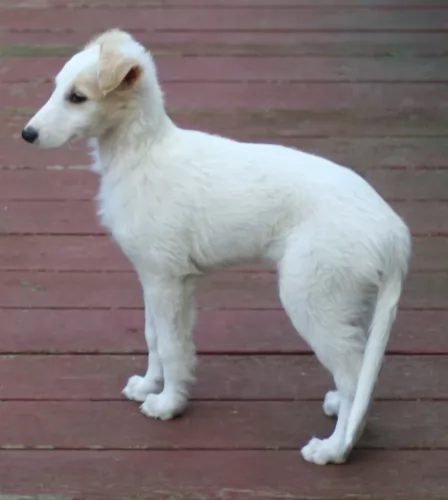 The Silken Windhound is a breed of beautiful, athletic medium sized dogs. They have the long coat, athletic build and classic lines of the sighthound/coursing dog. Just looking at them and you know they have strength, balance and grace in those medium sized bodies. Their running ability is exceptional. They perform well in the confirmation rings.
The Silken Windhound is a breed of beautiful, athletic medium sized dogs. They have the long coat, athletic build and classic lines of the sighthound/coursing dog. Just looking at them and you know they have strength, balance and grace in those medium sized bodies. Their running ability is exceptional. They perform well in the confirmation rings.
They are sine boned, balanced with smooth muscles – a sleek hardy looking dog. They have almond-shaped, large, dark eyes with small folded ears. Looking in their faces you see intelligence, friendliness and alertness. The head is long with a well balanced muzzle and a dark, slightly down-turned nose. Her lips are dark and full and her neck long and slender. The Silken Windhound must have a flexible loin because they have a gallop of double suspensions and are amazingly fast. A deep chest is also a must with a flexible, curving tail. Her legs are straight and long, as she is built for speed.
 Toy Poodles stand between 24 to 28 cm in height and weigh in the region of 2 to 5kg. Poodles are light-shedding dogs and are thought to be hypo-allergenic. If you have an allergy, a Toy Poodle can e a great dog for you.
Toy Poodles stand between 24 to 28 cm in height and weigh in the region of 2 to 5kg. Poodles are light-shedding dogs and are thought to be hypo-allergenic. If you have an allergy, a Toy Poodle can e a great dog for you.
The crip, curly coat comes in a number of colors – cream, apricot, brown, chocolate, and black and he can be clipped if you find that he is too high maintenance. If the hair is allowed to grow it can become very matted and turn into dreadlocks.
Many Toy Poodle owners find this very difficult to maintain and opt to have the dog’s hair clipped. The poodle has medium-length floppy ears. Docking of the tail is important if you want to keep the distinctive look of your poodle. Fortunately, docking is still permitted in the USA and this is best done when the puppy is very young.
Toy Poodles are intelligent dogs and are capable of learning a whole lot of commands and tricks. They’re also excellent athletes, being lively and energetic.
Being lively and alert, the Toy Poodle can be a good watchdog too, barking sharply at intruders. The Toy Poodle is very social and won’t take kindly to being left alone for hours.
Then again, he is gentle and sensitive and won’t do well with undisciplined children and their shrill screams. They are definitely dogs that want peace and harmony. And having him trained and socialized will get you a well mannered, obedient dog. He is small enough to adapt to life in the city or the countryside.
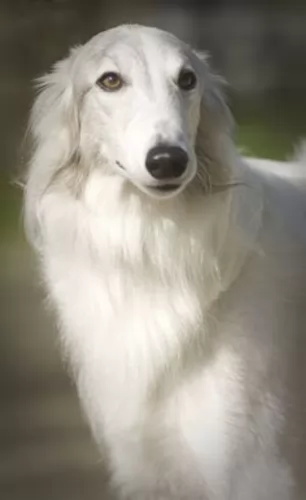 1. Children friendliness – they are great with children and would romp with them all day.
1. Children friendliness – they are great with children and would romp with them all day.
3.Adaptability Like most sighthounds they can be couch potatoes but being medium sized they can live just about anywhere as long as it is inside.
4.Learning ability - They are smart but their learning ability can be hampered by their stubbornness.
 This dog breed is very loyal to its family. It doesn't do well when left for hours on its own.
This dog breed is very loyal to its family. It doesn't do well when left for hours on its own.
Energetic and lively, you’ll find your Toy Poodle such a pleasure to have around. He is very intelligent too, so with training and socialization he becomes a super little pet.
Playful and social, he is like a small ray of sunshine that comes into your home and your heart.
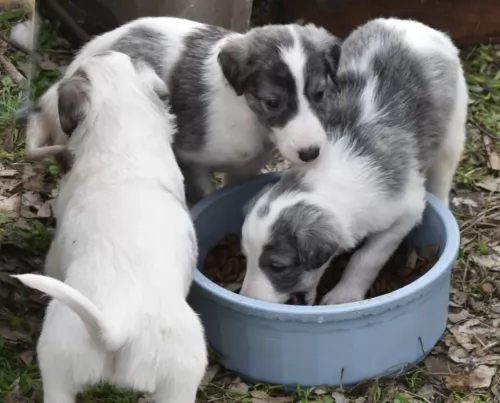 Most inherited diseases and conditions are rare. There is some drug related sensitivity, especially to ivermectin, and some dogs carry a MDR1 (multi-drug resistance gene) that is defective. Breeders are attempting to breed this out of the Silkens. A few other rare instances of concern include:
Most inherited diseases and conditions are rare. There is some drug related sensitivity, especially to ivermectin, and some dogs carry a MDR1 (multi-drug resistance gene) that is defective. Breeders are attempting to breed this out of the Silkens. A few other rare instances of concern include:
 Good food and exercise keep the Toy Poodle as healthy as possible, but like other dogs, the Toy Poodle can also get sick. Cancer, bloat, ear infections, and obesity are common dog ailments.
Good food and exercise keep the Toy Poodle as healthy as possible, but like other dogs, the Toy Poodle can also get sick. Cancer, bloat, ear infections, and obesity are common dog ailments.
Too many dog owners don’t realize the importance of healthy teeth. You need to look into the mouth of your pet regularly to make sure there are no rotting teeth. These problematic teeth can jeopardize the health of your pet.
Infection of teeth and gums can cause a host of other problems such as kidney and heart disease.
Check your Toy Poodle for parasites – fleas, ticks, worms as these can take a toll on your pet’s health. Your pet can become lethargic and the coat becomes listless, thin and dull. Your pet will also lose weight. Speak to your vet about treatments that can prevent these infestations.
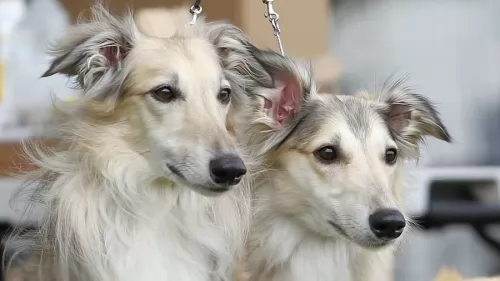 1.Feeding the puppy This is a medium sized, active breed. They need high quality dog food with plenty of protein. Feed them 3 times a day from a food made for high energy active medium sized breeds.
1.Feeding the puppy This is a medium sized, active breed. They need high quality dog food with plenty of protein. Feed them 3 times a day from a food made for high energy active medium sized breeds.
2.Feeding the adult - Feed them 2 times a day from a food made for high energy active medium sized breeds.
4. Games and Exercises The breed is active, and they love to run. They need daily exercise and they usually excel at flyball, agility, obedience and therapy. Obviously, they are very good at lure coursing and racing. They love to run or jog with you.
 Make sure to exercise your Toy Poodle every day. If you’re lucky to have a garden, play ball games with him, play hide and seek and take him for walks.
Make sure to exercise your Toy Poodle every day. If you’re lucky to have a garden, play ball games with him, play hide and seek and take him for walks.
Brush your Toy Poodle twice a week. His curly coat can become a source of concern for you and then you can have his coat clipped short.
Provide your pet with training and socialization and get him used to walking on a leash.
Take your Toy Poodle for regular visits to the vet. There are some serious canine diseases that can kill your pet.
Provide your pet with a nice dry, peaceful sleeping area. He needs his own water and food bowls. Wash these regularly.
Provide your Toy Poodle with the best dog food there is. Try and go for natural foods free from colorants and fillers. Try and also give him some home-made food such as boiled chicken, brown rice, sweet potatoes, and spinach. Dogs like the same good foods which are simple and nutritious.